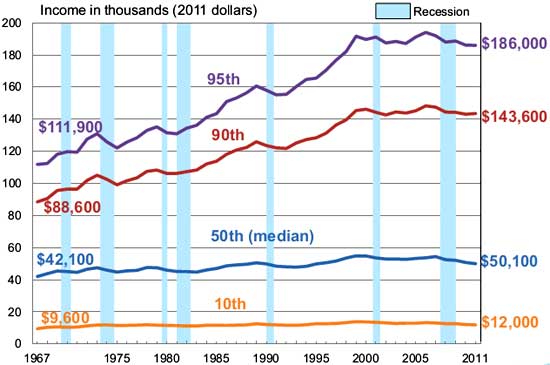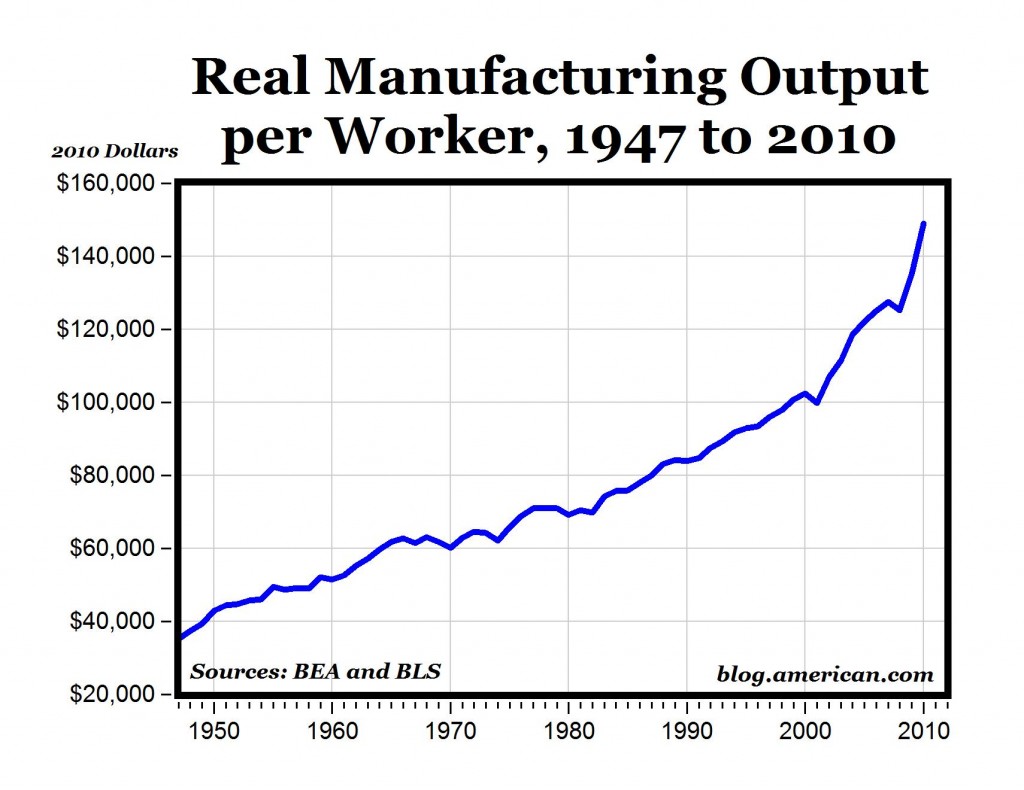Personal value is personal. We agree there. Utility is something different.
As far as terminology goes you are going to have to explain your terms for me in more detail, I generally deal with economic topics on a more conceptual basis and with people of too many varied backgrounds that the specific economic language you use is not something I am very familiar with. Google tells me that economically utility is "usefulness" and while I will agree that usefulness is different from value the two are related enough that the distinction is not necessary for the discussion we are having and so I use the general and more broadly understood term value.
Many would say that redistribution of wealth would lead some people to work less on the margins. That is likely true, but its not a big factor in why minimum wage is bad. The issue is not only that I don't want to take people's money. I also think it makes low productivity jobs too expensive to have.
College has become way to expensive. I wont go into why, but it has made it to where many will not get the return they expect. What I worry about are the poor people who could have gotten a job and worked their way up. Talk to anyone who is older and they will tell you it used to be very common to find a low wage job and work your way up. That has now been taken away because small firms cannot afford minimum wage. Many see this is a good thing, because a low wage job is "exploitation". That is incorrect.
If a small shop owner wants to give a local teen a job to give him a few extra bucks, he can't if the kids labor is not worth more than minimum wage. That kid could have gotten job skills and used that to get a better job. Then use that job to get an even better job. I am not a college grad and this is what I am doing.
I come from a very poor background where my mother was on welfare and I did not have my first computer until I was in 10th grade and even then we had dial up. Last year I purchased my house, and a few years before that paid off my car that I purchased new. I was lucky because I was always pretty smart and was able to find work easy.
The point is that you are taking away job opportunities for people that may not be college material, or simply not want college from starting in the work force.
I should day that I am a big Milton Friedman fan so a negative income tax would seem to work far better than minimum wage.
We would probably disagree on what the "problem" is. I think a huge issue is the fact that way too many resources are pushing people into college. People get burdened with large debts and skills that will not paid them back any time soon.
I also agree that far too much money goes to some people, but not likely the people you would choose. I don't believe in monopolies for public good, because to me that does not work. I think people should be able to make as much money as they can, so long as its willing by all parties.
I would much rather a society that provides people far more goods and a higher standard of living vs people that have more money and less things in the world.
I did not say what you are claiming, so I do not see a contradiction in what I said. Re-read what I said about wealth being multifaceted. Wealth is also a function of utility.
I am guessing you now assume I am a republican or a conservative because you are saying I am for corporations. I am not. Corporations are not people. Corporations are benevolent. Corporations do not feel or think. People run things. Why you made your statement is confusing to me, so please explain.
The economy is the term we give to a complex set of interactions. It is not meant to do anything. It is neither good or bad. People serve each other, not economies. This is not semantics.
Also, if you want an economy that is run by society, then open it up to the free market. And, before you go on about corruption, understand that all systems have corruption, its just that the free market has less.
I should also point out that the free market is not letting someone do what ever they want to people that are not strong enough to stop it.
Let me start with the last part first and then move there. Economy is a neutral term like you say. An economic system is the rules by which we go about participating in the economy. A set of rules contains within it a set of values. Actions that are not allowed are considered bad, actions specifically allowed good, and actions not specified are generally permissible or good until deemed otherwise by the body that controls/regulates the rules (often the general direction of the rules gives hints to actions not specified, but unless obvious we consider people acting on things not specified to have done nothing wrong)
What our economic system teaches us to be good and right is a large topic itself and we may even disagree here but I will just give a few things that I learned that I would say are things many people hold as something that our system promotes.
-wealth is good, more is better
-get as much as you can
-if you don't have enough, your doing something wrong
I believe in general that our economic system was designed to increase the overall wealth as quickly as possible. It lets you outcompete other systems and I think the thought was that any lack of wealth problem will simply fix itself as the system keeps generating more of it.
As a quick aside I am finding that I think I could write each paragraph to a few thousand words long if I wanted to cover the relevant details that I think would be important but I certainly don't have the time to even attempt such a thing. If something seems rushed or without enough information I can clarify, I'm trying to say too much it too small a space and it may come across a bit disjointed.
I commonly see people separate personal ethics system from business systems, phrases like "business is business". The US seems to be the most biggest hold out in terms of western first world countries in taking steps to align the two, Canada (where I am) not being that much different. The idea's of universal human rights and a belief that equality is good from a social perspective is what is most in conflict with our economic rules.
I see large wealth inequality as a problem in two directions. The more unequal the wealth between the easier it is for the wealthy one to take advantage of the poor one. If I can offer you nothing you truly need or want because all your needs and wants are taken care of you can demand a very high price for something that I believe I need and I will pay it. This results in unfair transactions and also leads to even more unfair transactions in the future. Secondly our obsession with growing the proverbial pie has some consequences that I believe makes it necessary slow down (think environmental impacts of our vast resource use, and that some important resources are being rather misused without regard to the future... the importance tend to be placed on immediate gain)
It also seems apparent that growing wealth in response to all problems is not a workable solution. In the end if you can not strictly rely on more wealth to fix the problems of people not having enough wealth, you have to start moving it around instead. Social programs, charities have existed for a long time now and are all efforts to redistribute wealth.
I see minimum wage increases as a incomplete redistribution solution, it does not control at all where the wealth comes from, only who its given too. This you rightly point out has problems. The strong point for minimum wage increases to me is that it addresses a very small level, but also very important human issue. Welfare programs and charity are considered by many people as a negative if they are on the receiving end, it represent to them that they are a failure. Minimum wage increases instead give them a larger reward for what they do giving them sense of dignity and contribution that ultimately leads them to more healthy well adjusted members of society.
I am not sure how I feel about monopolies... from a basic principle I believe that everything we deem to be a necessity should be distributed either for free or certainly at cost if for no other reason than to make people less vulnerable to exploitation. I am however not sure if the "pie" is currently large enough that we can actually do so, but that would align with my general values.
On specialized skills I am torn into many directions and I have no great answer lined up but I will just list the things that I believe to be important considerations. Undirected resource intensive special skill training without some sort of oversight or management of how much of each skill is required is wasteful. I also believe that many or most people do not know themselves well enough at the end of highschool to be able to correctly pick something they will enjoy/find fulfilling in the long run. Forcing people to specialize in something specific is bad. Waiting to long to train specialty skills is also inefficient.
As to my comments on your corporate thinking perspective it has nothing to do with what kind of political leaning you have or even that you think our economic system is great. I was trying to say that all your responses seem to be answered from a corporate owner point of view. Like you empathize with company owners easily, but you not very well with individual workers or government. I cant think of a better way to put it, but its not calling you a corporate shill or anything.




